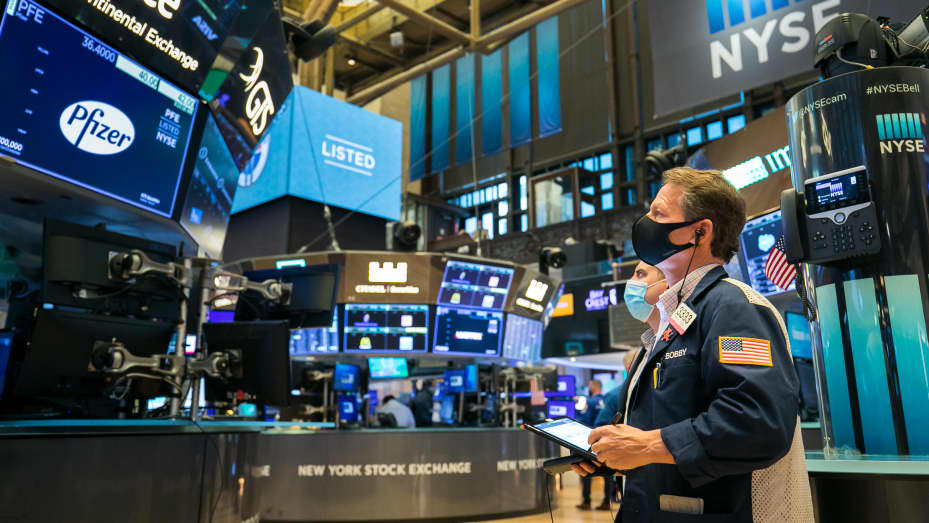
- Forex
- Indices
S&P 500 hits new record close
Do you want to know how to make money from this?
Register for free and get expert advice, access to a training course and webinars.
Key points:
- US stocks rose on Monday as market participants await the release of economic data and a Federal Reserve meeting this week.
- The S&P 500 hit another all-time closing high.
- Technology companies publish quarterly reports.
U.S. stock markets rallied on Monday as investors anticipate crucial economic data and the Federal Reserve’s monetary policy meeting this week.
The S&P 500 reached another record closing high. The energy sector (.SPNY) was the lone sector to register a decline. All three major U.S. stock indexes advanced, with the tech-heavy Nasdaq posting the largest percentage gain.
The Dow Jones Industrial Average (.DJI) climbed 224.02 points, or 0.59%, to settle at 38,333.45. The S&P 500 (.SPX) added 36.96 points, or 0.76%, to finish at 4,927.93, and the Nasdaq Composite (.IXIC) advanced 172.68 points, or 1.12%, to close at 15,628.04.
Technology companies release quarterly reports
A wave of impressive earnings reports is on the horizon as several tech heavyweights, including Alphabet Inc, Microsoft Corp, Qualcomm Inc, Apple Inc, Amazon Inc, and Meta Platforms Inc, are set to unveil their quarterly results starting Tuesday.
In addition, investors and traders are keeping a close eye on the shares of General Motors Inc, Boeing Co, and major oil companies Exxon Mobil Corp and Chevron Corp.
Tesla Inc‘s stock surged by 4.2% after the electric vehicle maker revealed plans for significant capital investments.
Meta Platforms Inc’s stock gained 1.7% after brokerage firm Jefferies raised its price target for the company’s stock to $455 from $425.
The Fed doesn’t guarantee a quick rate cut
The Federal Open Market Committee (FOMC) is set to convene on Tuesday for a two-day monetary policy meeting, where it is widely anticipated that the committee’s voting members will maintain the Fed’s benchmark federal funds rate target at 5.25% to 5.50%.
“Powell will probably exercise some caution. The Fed doesn’t want to get burned by inflation and won’t guarantee the (expected) March rate cut is almost inevitable.”
– says Ryan Detrick, chief market strategist at Carson Group in Omaha.
Fed Chairman Jerome Powell and other policymakers have cautioned against expecting interest rate reductions until inflation returns to its 2% annual average target. However, they have also expressed a commitment to remain adaptable in responding to economic data.
This week’s economic data calendar includes a range of labor market indicators, including a survey of job openings and labor turnover, fourth-quarter employment costs, and the January employment report on Friday.
Recent strong economic data, particularly robust GDP and personal consumption spending figures released last week, have both eased concerns about an impending recession and dampened expectations that the Fed will initiate interest rate cuts as early as March.
Do you want to know
How to make money from the news
Register for free and get:
- Expert consultation;
- Access to the training course;
- Opportunity to participate in webinars

